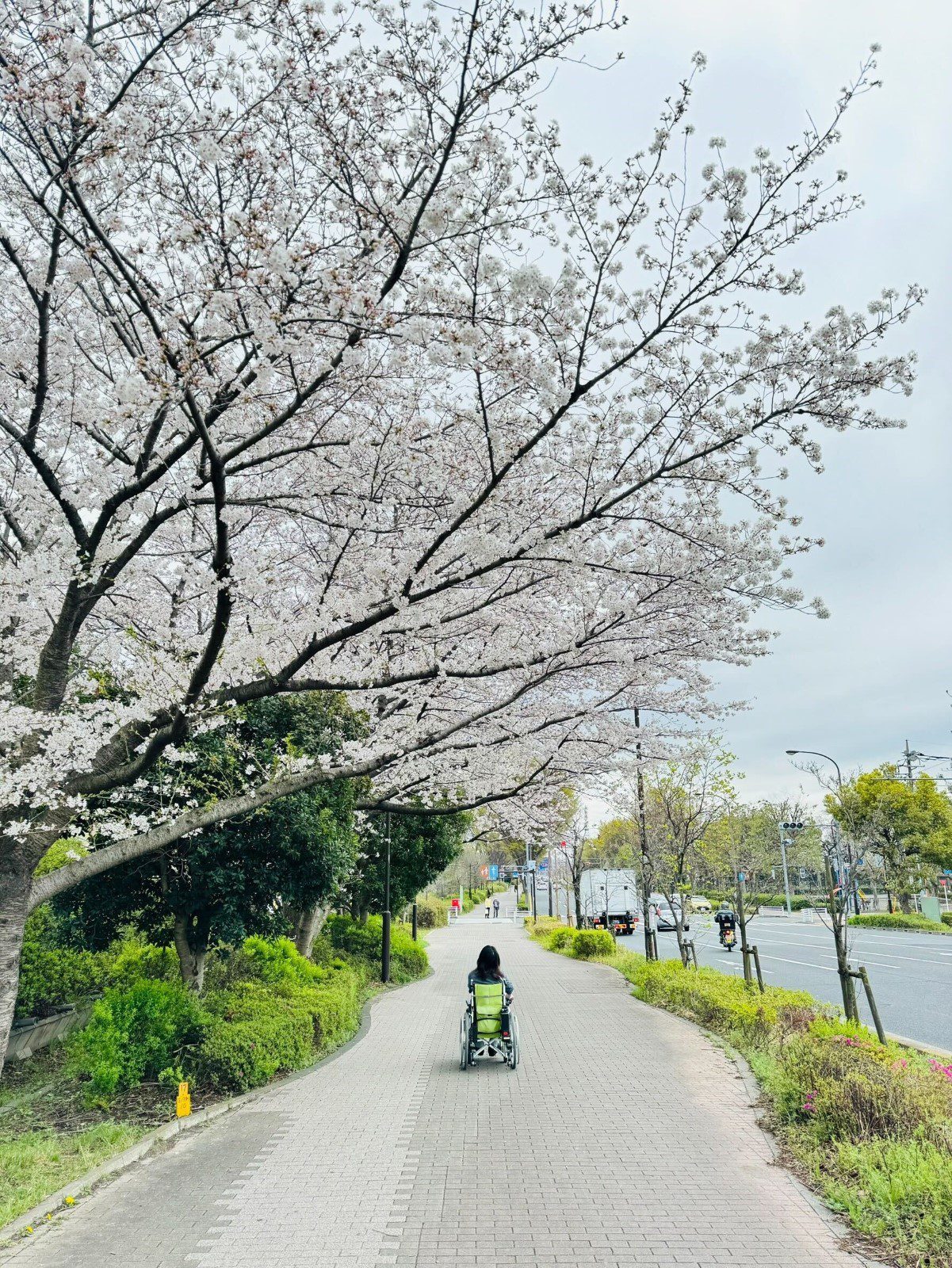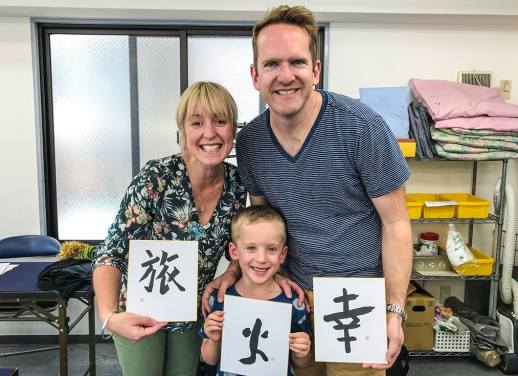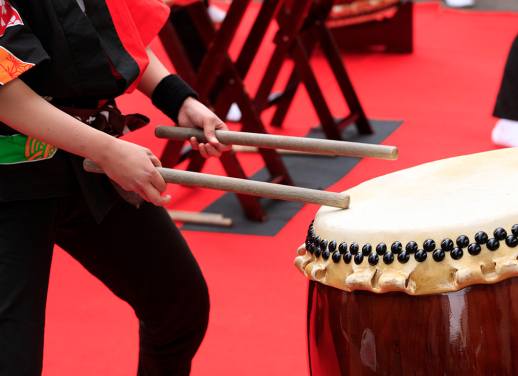Artificial intelligence is being touted as the solution to many of humanity’s problems. But in Japan, an innovative cafe is harnessing the power of robotic technology to tackle loneliness and celebrate inclusivity – not with AI, but real human-to-human connections.
On the face of it, Tokyo‘s Dawn Avatar Robot Cafe seems like any other modern Japanese dining establishment. It has a wide-ranging menu including Japanese favourites like katsu-sando and curry, ample tables, a kitchen and a coffee bar. The twist? Most of its staff aren’t actually there. Instead, servers are robot avatars, operated remotely by people with disabilities that prevent them from leaving home for work.
Since coming to Japan from the UK over seven years ago, I’ve encountered lots of new technology, from fancy toilets and rotating train seats to – yes, restaurants where the servers are robots. But after coming across the Dawn Avatar Robot Cafe on social media, I could see that it was different and I was keen to see what the fuss was about. I joined a group of Intrepid travellers on the Japan Highlights Family Holiday to visit the robot cafe and find out what makes the experience so special.
‘Hello and welcome,’ the avatar at the entrance smiles. It’s waving its hand slowly, greeting us one by one. ‘Hey!’ Cody shouts in response, as the children of the group pile excitedly into the space. ‘How are you doing?’ The robot responds eloquently. Not surprising, really, considering there’s a person operating it.

These are the droids I was looking for
We split into four small groups and take our seats. Each group has a server at the head of the table, who talks to us via a speaker in a small robot with a camera in its forehead. Next to each robot is a tablet that they control virtually, allowing them to bring up a series of slides.
We exchange introductions and pleasantries. My server introduces herself as Machun.
‘This is me in my home!’ she says brightly, bringing up a photo of herself smiling in her room. It feels strange talking to a robot as if it’s a person, and at first, I feel quite shy. There’s uproarious laughter coming from the kids’ table, as they take selfies with their human-operated robot. They’ve grasped the concept a lot faster than I have. Machun asks what I’d like to drink, pulling up a menu. I opt for a hand-drip coffee.
Our Intrepid leader, Yuki, moves around the tables, encouraging us to ask questions, and I take the opportunity to ask a personal one. I want to know why Machun can’t leave the house to work. In a normal setting, it would be rude to ask something so private, but Machun promptly switches to a slide detailing her condition. She talks me through her story.
Machun (real name: Aya Kaji) was once a PhD engineering researcher, managing her multiple sclerosis. In 2020, when she was 35, her MS symptoms worsened, and she started to use a wheelchair. Two years later, she contracted long covid, which affected her physical and cognitive functions, and put a stop to her academic career. ‘I found it hard to keep up, and felt like I couldn’t do anything useful again,’ she says frankly. ‘It was a really hard time. I’d followed this avatar cafe on Twitter for a while and one day I decided to apply.’ She’s been at the cafe since October 2024.

Barista bots and cyborg selfies
‘The coffee is ready, I’ll just grab it,’ Machun says, and the eyes of her robot go dark. A larger robot is coming towards us, eyes glowing, carrying a tray with my coffee. ‘It’s me!’ Machun says from the large robot. ‘Can you just grab this coffee?’ It’s steaming hot, and I reach out to take it. ‘Thanks, Machun!’ I say. With a cheery ‘no problem!’ she turns around and heads back to the bar, as I get up to look around.
The kids’ table is abandoned as they’re off exploring the cafe. They’re clustered around the barista robot, who’s directing them into selfie mode. Zack, the tallest, has his phone out, and they’re all trying to get into the picture with the robot. ‘I’ll just wave my hand now, so you can take the picture,’ the robot’s pilot says. ‘One, two, three!’ Everyone’s giggling, clamouring to be in shot.
The parents join them, with one of the dads staying behind to keep their pilot company. Cody breaks off and goes over to the entrance counter. He’s spotted the ‘operate a robot’ section, where guests take turns operating a robot avatar themselves.
Soon we’re all gathered around the machine, phones out as each kid tries to get the robot to move the way they want it to, squealing excitedly when they get it right. Seems like it takes some getting used to.

Authentic intelligence
I realise that I’ve left Machun – who’s back in her tabletop avatar – alone and move back to my chair, apologising. Machun is unfazed. ‘It’s totally fine,’ she says. ‘Are you enjoying it?’ I am, I say. Machun shares that the dress her current robot is wearing was made by one of the other staff. It’s bright pink and frilly. Across at the parents’ table, their robot is wearing a Japanese-style kimono. ‘She made that one, too,’ Machun tells me, as we look over together.
The adults are all leaning in towards their pilot, who’s explaining where she’s from — Nara Prefecture, near Kyoto, where the group is heading next. I take a peep at the slides, impressed by how much detail has gone into them, explaining all about Kyoto’s customs and its culture.
The pilots make many of the slides themselves, so they can converse freely with guests. Machun likes cooking, so she made a slide with different foods, like chicken karaage. Machun says that she’d like to try making a vegetarian version for me. The tablets don’t just work for showing slides and menus, either. They also act as translation aides, able to auto-translate Machun’s speech and display it on the screen in a range of languages, from French to Arabic. It’s an impressive set-up, designed to make communication as seamless as possible.
We’re speaking in Japanese, into microphones at our respective locations – me in the cafe and Machun at home – and there’s a dial on the table so I can adjust the volume to hear her clearly. One of the staff members shares that English ability among the pilots is a mixed bag. I can see why the servers prepare so many slides to show guests.



When Machun’s movement became limited by covid, she found it physically and mentally challenging. But thanks to the flexible set-up and human connection at her new job, that’s changed.
‘Just seeing people smiling while they talk to me makes time fly by,’ she says. ‘We’re on shifts chatting for one hour at a time, then we might go elsewhere, being a barista or something. It’s been fantastic for my mental health.’ I think back to what her life as a researcher must have been like, conducting intellectually stimulating tests and tasks for hours each day, and how much her life has changed since covid.
Before we know it, it’s time for us to pack up. Even though Machun and I aren’t physically in the same room, it really feels like we have been. Yuki comes over to take a picture of us together, and Machun and I swap Instagram handles.
Yuki regularly takes travellers to the cafe and sums up the experience from her perspective. ‘It’s a powerful reminder that even from afar, human connection is very real and deeply moving.’
I agree. In a world where it can seem that AI is taking place of real-life connections – just look at all the stories about AI companions, AI therapists and so on – the robots at Dawn Avatar Robot Cafe feel like the opposite of that. I’d arrived expecting to say ‘hello’ to some robots, but chatting to Machun was a remarkably intimate experience. Over the course of an hour, we shared stories and told jokes, laughing real laughs and feeling joyful, sad and happy – the byproduct of a wide-ranging, human-to-human chat. This experience wasn’t a simulation of humanity; the robots here are beacons of authentic inclusion and enablers of real, beautiful connections.
Kim met Machun on a Japan Highlights Family Holiday. Explore the full range of Intrepid’s Japan trips to find the right adventure for you.



